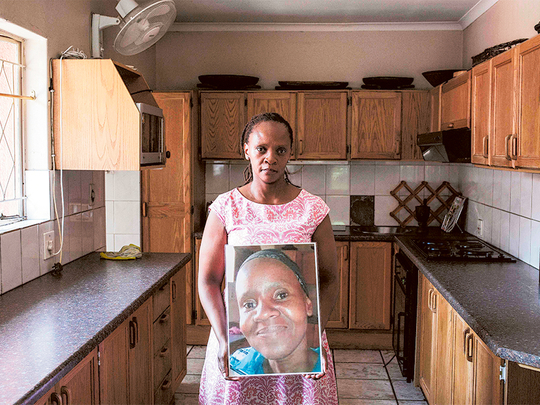
JOHANNESBURG: The deaths of nearly 100 psychiatric patients last year in South Africa’s most developed province have prompted anger at government officials who transferred the patients to non-governmental groups allegedly operating with invalid licenses.
While President Jacob Zuma on Thursday expressed condolences to the families of the dead, some opposition leaders said the president was ultimately responsible for the scandal. They called for the resignation of David Makhura, the premier of Gauteng province. The Democratic Alliance, South Africa’s main opposition party, planned a candlelight vigil late Thursday outside Makhura’s office in Johannesburg.
The province’s top health official has already quit.
Only one of the deaths was linked to a mental illness, while 93 other patients died because of dehydration, diarrhoea and other conditions that could have been treated, according to a health watchdog report. It cites reports that some non-governmental institutions were overcrowded and lacked enough food and staff.
The health department in Gauteng had transferred nearly 1,400 patients from a licensed facility to cut costs.
Gauteng includes the capital, Pretoria, and the nation’s commercial hub, Johannesburg.
Zuma’s office said the president thanked health ombudsman Malegapuru Makgoba for the report on the deaths, noting that it will help the government “ensure that such a tragedy does not recur in the health sector.”
The report said some state mental health workers had been concerned about the transfer of the patients, and became frustrated because they felt their leadership was not listening to them. Some workers broke down with emotion while being interviewed, it said.
Many of the deaths were due to pneumonia, dehydration and diarrhoea, as the patients were hurriedly shifted to 27 “poorly-prepared” facilities in an apparent cost-cutting measure that showed evidence of neglect.
The health ombudsman report, which sparked uproar in South Africa, detailed how some patients were collected from the Life Esidimeni hospital in the northern Gauteng province using open pickup trucks.
Patients were then selected in a process like an “auction cattle market”, before being taken away and then often shuttled between several of the new care centres.
As the scandal broke, provincial health minister Qedani Mahlangu resigned over the findings, which directly implicated her in the move.
According to the report, relatives were left in the dark over where the patients were — or even if they had died in the overcrowded, unheated centres that some witnesses said were like “concentration camps”.
The centres also failed to provide seriously ill patients with enough food and water, leaving them severely malnourished, underweight and in some cases dying from dehydration.
Gauteng’s provincial health department had terminated its long-standing contract with the Life Esidimeni hospital and moved more than 1,300 patients to an “unstructured, unpredictable, substandard caring environment”, the report said.
“One person has died from a mental health-related illness. None of the 93 (others) have died from a mental illness,” health ombudsman Malegapuru Makgoba told local media as the report was released.
“The Gauteng Health Department took patients from a licensed institution and handed them over to unlicensed facilities,” he added.
Makgoba said the death toll was likely to rise as investigations continued into the fiasco.
The report pointed towards the neglect that led to the deaths being caused by profit-seeking.
The 27 health care centres “were mysteriously and poorly selected” and were “unable to distinguish between the highly specialised non-stop professional care requirements ... and a business opportunity,” it said.
Gauteng Premier David Makhura vowed to hold accountable all the responsible officials.
The opposition Democratic Alliance party expressed outrage over the findings, and accused the government of lying about the death toll when reports of the tragedy began to emerge.
“Criminal charges should also be laid against all implicated parties,” said the party’s provincial shadow health minister.












